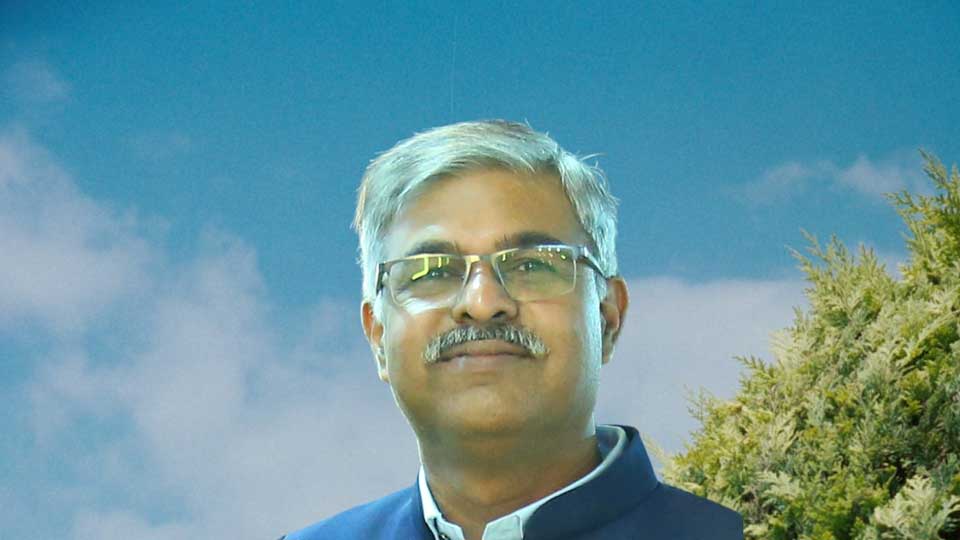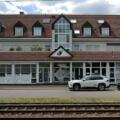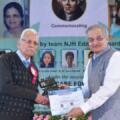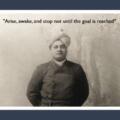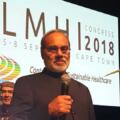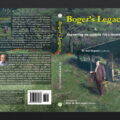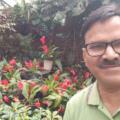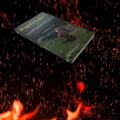In the realm of homoeopathy, it is not just the remedies and treatments that create lasting impact but also the individuals who devote their lives to the expansion and deepening of this healing art.
Among such distinguished individuals is Dr. Rajneesh Kumar Sharma, whose career and contributions have been a beacon of knowledge and inspiration in the homoeopathic world.
In this context, it is both an honour and a privilege to present his review of a significant work in the field of homoeopathy, “Boger’s Legacy and Augmenting the Synoptic Key’s Repertory” by Dr. Anil Singhal.
About the reviewer:
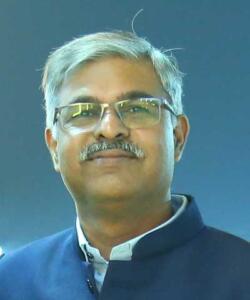
With an illustrious career spanning over three decades, Dr. Rajneesh Kumar Sharma stands as a pillar in the world of homoeopathy, contributing significantly to its practice, research, and dissemination. His exceptional educational background, with degrees like BHMS, MBBS, MD (Homoeopathy), hMD (UK), DI Hom (London), DLit (UK), and PhD, is a testament to his dedication and scholarly pursuit in the field.
As a Consultant Homoeopathic Physician, Dr. Sharma has touched the lives of patients across more than 40 countries, showcasing the global reach and impact of his expertise. His clinical acumen, honed over 30 years, reflects a deep commitment to healing and wellness, grounded in the principles of homoeopathy.
In his role as the International Vice President of the Homoeopathy World Community, Dr. Sharma plays a pivotal part in steering the course of homoeopathic practice and education worldwide. His influence extends through his active participation as an Executive/Privileged Member of the Delhi Homoeopathic Medical Association, and as a Life Member of prominent organizations like the Homoeopathic Medical Association of India, the Indian Institute of Homoeopathic Physicians, and the Indian Medico-legal and Ethics Association.
Dr. Sharma’s intellectual contributions to homoeopathy are profound. As an author, he has enriched the field with numerous research papers, articles, case presentations, and books, shedding light on various facets of homoeopathic medicine. His work not only educates but also inspires practitioners and students alike.
A renowned figure in homoeopathic circles, Dr. Sharma is a sought-after organizer and faculty member at several national and international conferences. His ability to share knowledge and insights has made him a respected voice in homoeopathic education and discourse.
The myriad of International and National Awards he has received are a clear reflection of his excellence and the high regard in which he is held by the homoeopathic community. These accolades are a fitting recognition of his contributions and achievements in the field.
At the forefront of the Homoeo Cure & Research Institute, Sparsh Multispecialty Hospital, and Vaibhav Homoeopathic Pharma as Chief Managing Director, Dr. Sharma continues to lead and innovate in the realm of homoeopathic medicine. His leadership at these institutions underscores his multifaceted role as a clinician, administrator, and visionary in the homoeopathic world.
Dr. Rajneesh Kumar Sharma’s journey in homoeopathy is not just a chronicle of personal achievement but a beacon of inspiration, guiding future generations of homoeopaths towards excellence and compassionate care.
The Review:
Dr. Anil Singhal’s “Boger’s Legacy and Augmenting the Synoptic Key’s Repertory” is a comprehensive exploration into the life and contributions of the legendary homoeopath, Dr. Cyrus Maxwell Boger.
With a foreword by Prof. Dr. M P Arya, the book delves deep into Boger’s journey, making him a true luminary in the field of homoeopathy.
The book opens with acknowledgments to prominent scholars who have contributed to the field, setting a tone for the depth of research and expertise within its pages. The well-structured preface piques the reader’s interest, laying the groundwork for what follows.
The inclusion of a list of abbreviations and tables and figures enhances the reader’s understanding, making the content accessible and user-friendly. The book is divided into sections, beginning with an introduction that sets the stage for Boger’s significant impact on homoeopathy.
One of the book’s strengths lies in its detailed exploration of Boger’s life, starting from his early years and education. The narrative skillfully traces his transition from pharmacy to homoeopathy, offering insights into the pivotal moments that shaped his journey.
A major highlight of the book is the meticulous examination of Boger’s works on Boenninghausen’s repertory, shedding light on the thought processes and methodologies that defined his approach. The compilation of the Homoeopathic Repertory to Boger’s Synoptic Key is thoroughly discussed, providing readers with an in-depth understanding of its evolution across various editions.
The section on augmenting the Synoptic Key’s repertory is particularly enlightening, offering practical insights for practitioners. Dr. Anil Singhal provides valuable commentary on how Boger’s legacy has evolved over different editions, making the book an invaluable resource for homoeopathic practitioners and enthusiasts.
The book culminates in a detailed timeline of Boger’s legacy, presenting a chronological overview of his significant works. The timeline is a useful reference, providing a quick glance at the evolution of Boger’s contributions.
The book is well-presented, with a smart and concise bibliography and a section about the book that sums up the reader’s experience. The soft binding and pocket-sized format make it a practical companion for homoeopathic practitioners.
In conclusion, “Boger’s Legacy and Augmenting the Synoptic Key’s Repertory” is a commendable work by Dr. Anil Singhal. It is both informative and concise, making it an essential addition to the library of homoeopathic professionals and enthusiasts.
I extend my best wishes to the author for a bright future.
As we reach the conclusion of this insightful review by Dr. Rajneesh Kumar Sharma, we find it imperative to extend our deepest gratitude. His thorough analysis and generous appraisal of “Boger’s Legacy and Augmenting the Synoptic Key’s Repertory” are not just reflective of his expertise but also of his commitment to fostering growth and excellence in the field of homoeopathy.
Dr. Sharma’s words are not merely an endorsement of the book; they represent a confluence of wisdom and experience that enriches the fabric of homoeopathic literature and practice.
As we move forward, let us carry the wisdom imparted by these eminent personalities in our hearts and minds. Let their dedication and achievements spur us on to reach new heights in our practice and understanding of homoeopathy.
Together, we can continue to build upon the foundations they have laid, advancing the cause of health and healing through the gentle yet profound power of homeopathy.
